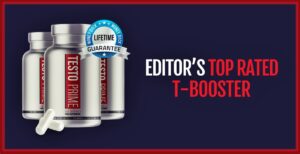Testosterone is the cardinal male glandular hormone critical for both physical and cognitive vigor in men and women.Though testosterone levels naturally decline with age, there are ways to naturally boost your testosterone through lifestyle, exercise and diet. Consuming certain nutrients and foods can help promote testosterone production and balance hormones.

This article will discuss the best testosterone boosting foods, the nutrients that support testosterone and lifestyle tips to optimize T levels.
Why Testosterone Levels Matter
Testosterone is integral for the male physique, modulating vital aspects such as carnal urge, muscular hypertrophy, skeletal integrity, erythropoiesis, affect, and cognition. Low testosterone, also known as hypogonadism or Low T, can negatively impact energy, libido, fertility and overall vitality.
Testosterone begins to slowly decline after age 30, with levels dropping approximately 1 percent per year. Lifestyle factors like chronic stress, obesity, poor sleep and vitamin deficiencies can hasten this decrease in testosterone.
While originally thought of as a “male” hormone, testosterone also plays an important role in women’s health. Though women produce much lower levels than men, testosterone helps build lean muscle mass, boost athletic performance, improve sex drive and regulate menstrual cycles.
Natural Ways to Boost Testosterone
The good news is that there are several evidence-backed ways to naturally increase testosterone without the use of synthetic hormones or testosterone replacement therapy (TRT). These include:
- Strength Training and High Intensity Interval Training (HIIT)
- Getting Enough Vitamin D from Sunlight
- Maintaining Healthy Body Weight
- Reducing Stress
- Getting Plenty of Restful Sleep
- Optimizing Vitamin and Mineral Intakes
Along with lifestyle measures, consuming testosterone boosting foods can provide key nutrients needed for hormone optimization. Let’s take a closer look at the top foods for boosting T levels.
Top 12 Testosterone Boosting Foods
Here are 12 of the top foods to add to your grocery list to help support healthy testosterone production:
Oysters
Zinc is essential for modulating testosterone production and oysters just happen to be the best dietary source, providing almost 500 percent of your daily value in just 6 medium oysters! Zinc inhibits aromatase, the enzyme responsible for converting testosterone into estrogen. Even mild zinc deficiency can result in low testosterone so be sure to include plenty of zinc-rich foods in your diet.
Olive oil
Extra virgin olive oil contains high levels of vitamin E and antioxidants including squalene and oleic acid which protect testosterone molecules from the damage of free radicals. Use olive oil for cooking, on salads, fish and vegetables to reap the hormonal benefits.
Eggs
Eggs contain generous amounts of vitamin D, cholesterol and protein – all key nutrients for hormone production. Cholesterol is actually the building block for all sex hormones including testosterone. Aim for at least 2-3 whole eggs each day as part of a balanced, nutrient-dense diet.
Avocados
The monounsaturated fats found in avocados support heart health and can help naturally raise testosterone levels. Avocados are also a source of vitamin K, potassium and antioxidants like glutathione and lutein which protect the testes and reproductive organs. Add some avocado slices to your burger, use guacamole as a dip or add avocado to smoothies and salads.
Tuna
If you don’t eat much seafood, be sure to add some tuna or salmon to your lunch. Fatty fish like tuna and salmon contain vital omega-3 fatty acids which help suppress inflammation and support healthy hormone balance. Aim for at least two 3.5oz servings of fatty fish per week
Pomegranates
Pomegranate juice raises testosterone levels while improving mood and protecting the heart. In one study, men who drank pomegranate juice daily for two weeks increased testosterone levels by 24 percent! Pomegranate polyphenols and antioxidants called ellagitannins are believed to boost blood flow and stimulate testosterone.
Cruciferous vegetables Broccoli, cauliflower, Brussels sprouts, kale and cabbage contain unique compounds that can help facilitate testosterone production. These vegetables contain indole-3-carbinol which helps eliminate excess estrogen and promote hormonal balance. The fiber found in cruciferous veggies can also aid elimination of toxins and waste products that dampen testosterone.
Grass-fed beef
Red meat might have gotten a bad reputation over the years but grass-fed beef can positively influence testosterone levels in men. Grass-fed beef contains vitamins A, E and D along with zinc, conjugated linoleic acid (CLA) and omega-3 fats which support testosterone production and lean muscle growth. Those with sensitivities can also try bison or lamb a couple times a week.
Ginger
The root spice ginger can increase testosterone levels while reducing oxidative damage and inflammation. Compounds like gingerol give ginger its potent health-promoting effects. Add fresh ginger to tea, smoothies and stir fries or take ginger supplements if you tolerate them well.
Pumpkin seeds
Pumpkin seeds provide zinc, magnesium and omega-3 fatty acids to give your testosterone levels a boost. These seeds also contain protective compounds called polyphenols and beta-gluten which can support prostate health and regulate inflammation. Aim for a couple handfuls of seeds a few times a week.
Garlic
This pungent bulb contains allicin, a compound which lowers cortisol and increases testosterone. Garlic also acts as a natural aphrodisiac to rev up sex drive in men and women. Use fresh garlic liberally when cooking tomato sauces, soups, stews and meat dishes.
Bananas
Potassium-rich banana offer numerous health perks – balancing electrolytes, easing digestion and yes, even naturally increasing testosterone! Bananas contain an enzyme called bromelain which can boost male sex hormones. Bananas are also rich in B vitamins like riboflavin which are essential for testosterone production and energy levels.
The Best Diet for Boosting Testosterone Levels
While focusing on testosterone-friendly foods is a smart idea, keep in mind that an overall healthy, balanced diet is key for long-term hormone health. Here are some top dietary tips for maintaining optimal T levels long-term:
Enjoy plenty of fresh fruits and vegetables which provide antioxidants to protect testosterone molecules. Brightly colored veggies and low sugar fruits are best.
Choose lean proteins at each meal like fatty fish, beans, tempeh, eggs, chicken or grass-fed meats. Protein provides amino acids for testosterone synthesis.
Reduce intake of refined carbs and added sugars which cause blood sugar spikes and inflammation. Both of these factors can disrupt testosterone balance.
Increase healthy fats from olive oil, avocado, nuts, seeds and coconut products. Healthy fats regulate hormones and supply fat-soluble vitamins.
Stay adequately hydrated with water, herbal tea, or electrolyte drinks. Dehydration causes cortisol spikes which deplete testosterone over time.
Limit alcohol intake which can reduce zinc absorption and lower testosterone levels. 1-2 drinks per day or less is ideal for health.
Boost Testosterone by Testogen
Testogen is a all natural testosterone booster supplement. By targeting luteinizing hormone and the Leydig cells of the testes, Testogen amplify testosterone bioavailability, athletic performance, vigor, and virility without hazardous steroids or TRT. Customer surveys convey notable muscle gain, fat loss, and upgraded energy with Testogen’s formula.
The Takeaway
There are many simple ways to give your testosterone levels a natural boost while improving overall health and vitality, well into your senior years. Make sure your eat plenty of the top testosterone-friendly foods each day as part of an active, balanced lifestyle. Pay attention to your body, get enough rest, minimize stress and practice healthy self-care habits for lifelong hormone balance and vigor.





